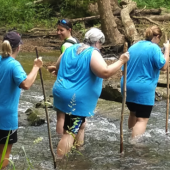
Abstract: The purpose of this article is to provide key aspects and learning outcomes associated with the Math of the Mountains Project. Math of the Mountains was a year long grant project that engaged 60 K12 mathematics teachers in the key concepts and applications of place-based learning and mathematics instruction. Through online coursework and peer support, a four-day immersive field experience, and teacher led field experiences, participants applied elements of PBL to create lesson activities that support real-world learning and problem solving scenarios.
Continue ReadingThis qualitative research study examined the relationship between sense of place and engagement in community food systems. Narrative inquiry, phenomenology, and case study methodologies were used to capture the rich, lived experiences of 29 participants involved in community food systems. The participants were affiliated with one of three organizations in Wisconsin. The results emerging from semi-structured interviews uncovered the interrelated motivations, outcomes, engagement activities, and senses of place of the participants. The study proposed that food, particularly the growing and eating of local food, had the unique characteristic of connecting people to the social and ecological aspects of place in ways that developed a strong sense of place and an integrated human-nature worldview centered on food (a “foodview”). The results also supported a multi-dimensional understanding of sense of place.
The results of this project will be useful to community organizers, food systems advocates, and sustainability educators.

Abstract: Geography supports place-based inquiry for the learner, applying the old environmental adage of “think globally, act locally” to environmental problem solving. Many within and outside of the discipline of geography see it as a highly appropriate home for sustainability studies. Yet despite a history of human-environment education, place-based relevancy, and support from professional research or education organizations, studies show that geography does not always take a lead role in sustainability education. In the following, we revisit the contested histories of geography and sustainability education and show support for geography-led sustainability curriculum. The scope of this research is universities which have self-identified as leaders in campus sustainability, using the Association for the Advancement of Sustainability in Higher Education (AASHE) Sustainability Tracking, Assessment, and Rating System (STARS) participation as an indicator. To best understand the current relationship of geography and sustainability studies in higher education, this study examines the role of geography in offering “Sustainability Focused” courses as reported by AASHE STARS institutions with geography programs. The results show that although geography departments are highly utilized when present at an institution, there is still much room for improvement both within geography departments and campus-wide. We then discuss the implication of these findings, both for the discipline of geography and for students of sustainability.
Continue Reading
Abstract: This photo essay reflects one sense of place from Mauna Kea.
Continue Reading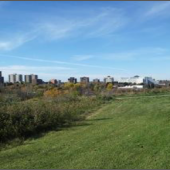
This paper provides a descriptive analysis of the experience of four doctoral students engaged in a collective project of place exploration at a midsize Canadian university. Under the methodological tradition of self-study, we contextualize concepts of place attachment and decolonization in order to investigate what it means to be interdisciplinary scholars of sustainability. We use storytelling and mobile discussion methods, alongside visual and mapping methods to disentangle our experiences and analyses of place, mobility, land, and scholarship. This reflective piece demonstrates that collaborative forms of scholarship such as this require deliberate moves toward community creation and place attachment within institutions of higher education. Through a process of collaborative investigation and writing, we have created spaces of caring academic scholarship rather than engaging in competitive and hierarchical university culture.
Continue Reading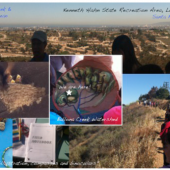
This postcard is inspired by my dissertation research at the Kenneth Hahn State Recreation Area and Ballona Wetlands in Los Angeles. I spent many months observing student tours and frequently was struck by many of the reactions and observations I mentioned in my postcard.
Continue Reading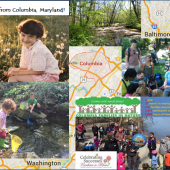
This “post card” reflects on the “senders” experiences of playing in nature during her childhood, her return to that same community with children of her own, observations about changing patterns of children’s free-play in nature, and the inspiration for and experiences of creating a family nature club to help families in her community connect with their social and ecological communities.
Continue Reading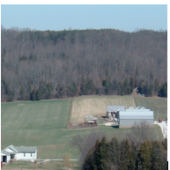
This paper focuses on understanding the collaborative process as a critical aspect of building community capacity to respond to change and uncertainty in the landscape. Can focusing on place-based relationship building enhance a community’s ability to make difficult land use decisions? Collaborative initiatives to preserve farmland and open space have emerged as a process that supports local involvement and ownership of community decisions; however, the variable success of these initiatives highlights the need to evaluate what factors influence individual support for collaboration. This study uses a case study to examine the role of sense of place, as well as other attitudinal and demographic factors, in determining support for collaborative efforts to preserve farmland. Drawing on analysis of responses to a survey of residents in Harrison County, Indiana from a period when the community faced intense growth pressures that threaten unique natural resources and farmland. The findings demonstrate that an individual’s sense of place and environmental attitudes positively influence support for key steps in the collaborative process, including the acceptance of strategies to address farmland loss.
Continue Reading
The author explores her own personal journey toward a sense of place as she draws connections among our natural and human community, early childhood development, peace, and sustainability. The story contributes to the continuing dialogue that explores the relationship of place to humans through various viewpoints, approaches, and experiences.
Continue Reading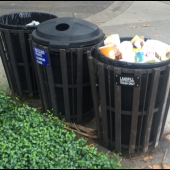
The sport industry has a tremendous impact on the natural environment. As a result, sport organizations have implemented ways to reduce their impact ranging from energy upgrades, waste management programs, and fan engagement. However, fan engagement efforts have received mixed results to increase participation in sustainability initiatives. This paper proposes that sense of place can be leveraged using fan identification to increase participation in such initiatives, thereby decreasing the environmental impact of the sport organization and individual fans. A conceptual model is presented and practical examples provided for the use and reference of sport management and sustainability educators or researchers.
Continue Reading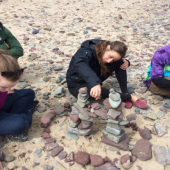
Environmental Study of Sustainable Places is a pedagogical experiment in multi-disciplinary curriculum development on several levels: 1) we integrated our multidisciplinary backgrounds in the social sciences and the humanities—political science and international relations with art and aesthetic education—to develop and co-teach these half courses; 2) student learning outcomes, course requirements, interactions and collaborations, multimedia texts (that can range from journal essays to Ted talks to articles from international press to images of environmental artists), and out of class projects, promote interdisciplinary learning; 3) the semester course confronts borders and boundaries of static college curriculum around sustainability as we examine global and local understanding of sustainability, which is a pre-requisite for a residency at the University of Wales Trinity Saint David where students crossed international borders and boundaries to conduct research of sustainable policy and enculturation in Wales, United Kingdom. Students attended interdisciplinary symposiums and work collaboratively with students representing different disciplines from the University of Wales; and 4) we delicately navigated the College’s curricula policy and bureaucracy to gain approval for a paradigm shift to use the concept of sustainability as a “pedagogical big idea” to assure that students would fulfill either of the Liberal Studies Curriculum requirements: Global Issues for Common Good or Artistic Experience.
Continue Reading